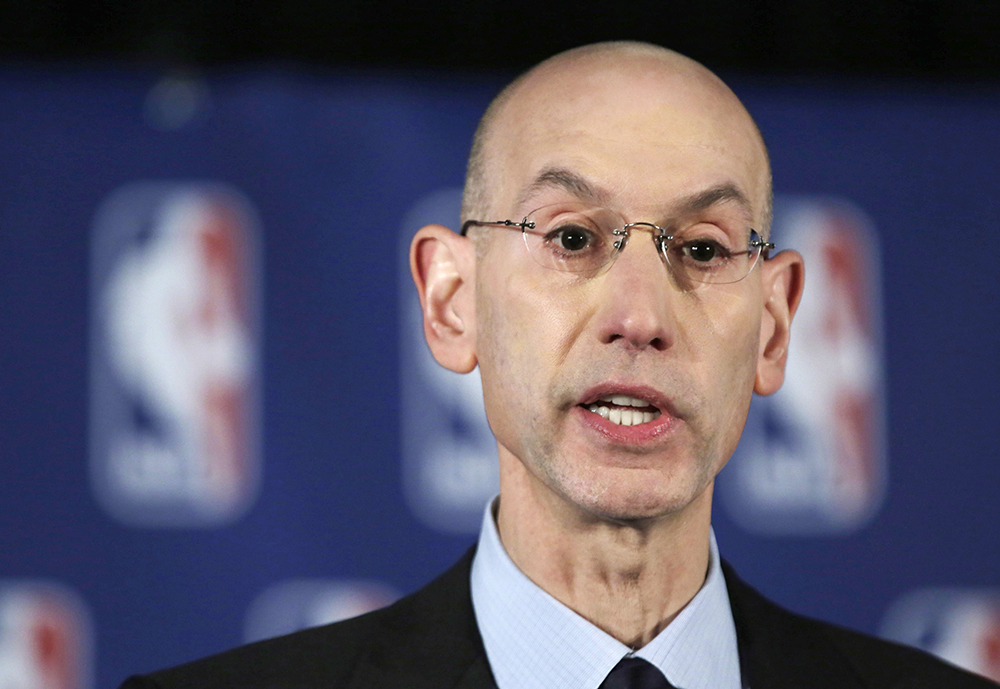New NBA commissioner Adam Silver has received praise for quickly suspending Los Angeles Clippers owner Donald Sterling and for his touching recognition of the medically disqualified Isaiah Austin at last week's draft.
If Silver attains his goal of raising the NBA draft minimum from 19 to 20 years and from one to two years out of high school, he would be greatly endearing himself to Southeastern Conference coaches.
"My personal opinion is that it would help the quality of college basketball and likely help the quality of basketball at the next level," Georgia's Mark Fox said Monday as the SEC held a summer teleconference. "Guys would be more prepared to enter the NBA if they do it, so I welcome Mr. Silver's approach. Whether or not he can get it done with the players association is another issue, but I think it's a change that would help both sides."
College basketball has been dealing with a "one-and-done" structure since 2005, when it was part of the collective bargaining agreement between the NBA and its players association. Currently, a player can be eligible for the draft when he's 19 and a year removed from high school.
The league and the players group had a CBA in 2011 that included a revision of the one-and-done at any time, and Silver said this spring that raising the minimum age was his top priority.
"I think it would be a spectacular adjustment," new Auburn coach Bruce Pearl said. "Too many guys have gone a year early, gotten drafted and signed their first contract, but when it was time to really get paid on that second contract, they weren't good enough because they were just too young. Just think what Kansas would look like if those two kids were coming back and what Duke would look like if those two kids were coming back or what Kentucky would look like if they had a couple of guys back."
Said Arkansas coach Mike Anderson: "The one-and-done sometimes makes a mockery of the college experience. I think the product that's going to the NBA would be better and more refined in terms of going in and helping teams instead of going in and sitting and waiting."
No coach has navigated this one-and-done era more effectively than Kentucky's John Calipari. Despite signing 11 freshmen who months later became NBA first-round selections, Calipari has led teams to three Final Fours and one national championship in his five seasons in Lexington.
"There were coaches last year whose primary guys were freshmen, and they couldn't advance in the NCAA tournament," Calipari said. "Afterwards they said how difficult that was, and it is. Try starting five freshmen and doing it. To do this every year in this environment at Kentucky isn't impossible, because for five years we've done it, but we did have a year when Nerlens [Noel] got hurt.
"If he doesn't get hurt, we're probably a Sweet 16 team, but he does get hurt and we're not only an NIT team but an NIT team that loses in the first round. It's a dangerous thing for the coach."
Calipari said college players would be better prepared for the NBA with two seasons of experience, but he does believe a lottery pick has the right to leave after one year. He would like the NCAA to enhance the cost of attendance for players and to cover their insurance, and he wants more of a working relationship with combines so players can make better decisions.
"We finally after five years of wrangling got the food right," Calipari said. "We can now feed these kids without feeling like we're going to go to jail and that we're criminals for feeding them."
One concern with raising the age from 19 to 20 is the potential increase in players who could opt for the NBA's Developmental League or take the Brandon Jennings route.
Jennings bypassed college after graduating from Oak Hill Academy and played a year in Italy for $1.65 million. He declared for the 2009 NBA draft and was selected 10th overall by the Milwaukee Bucks.
"From a marketing standpoint, there is no way anyone who goes overseas or who plays in the D-league can even remotely touch the exposure that you're getting in the college game," Pearl said. "They could potentially be forgotten. I think there would be a player or two every year who academically doesn't want the rigors of having to go to college, and I think that would be more of a factor as opposed to the money being a factor."
Contact David Paschall at dpaschall@timesfreepress.com or 423-757-6524.

